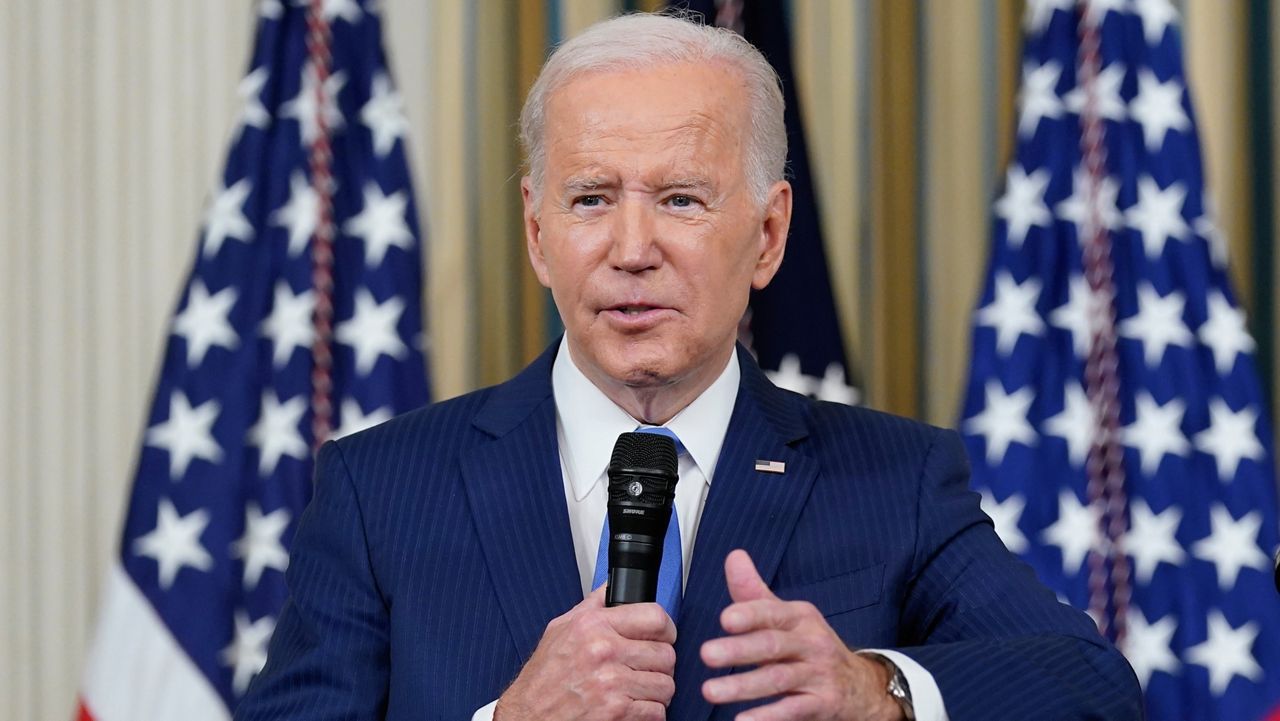As his party exceeded expectations in the 2022 midterms Wednesday, President Joe Biden cheered the elections as evidence of democracy working as it should, acknowledged challenges ahead and laid out a plan for working with potential Republican leaders in Congress.
“The American people have spoken and proven, once again, that democracy is who we are,” he said.
The president admitted ongoing economic pain for many Americans, which consistently was the top issue in pre-election polling: “Voters have spoke clearly about their concerns about … rising costs and the need to get inflation down. There's still a lot of people hurting. They're very concerned. And it’s about crime and public safety.”
Yet his message was hopeful – both about how the largely-smooth elections showed a functioning democratic system and about what he could get done working with Republican lawmakers, who are likely to have the majority in the House of Representatives.
Biden promised to invite Congressional leaders to the White House to discuss working together after he returns from his upcoming trip to Asia. And he said he planned to speak House Minority Leader Kevin McCarthy, R-Calif., Wednesday evening.
“As I have throughout my career, I'm going to continue to work across the aisle to deliver for the American people,” he said. “It's not always easy, but we did the first term. It’d probably surprise a lot of people, but we signed over 210 bipartisan laws since I've become president.”
“It's hard to sustain yourself as a leading democracy in the world if you can’t generate some unity,” he later added.
However, Biden also committed to protecting core principles of his agenda – a focus on lower- and middle-class families, climate and abortion rights – and he made “very clear” what GOP-backed proposals he would not support.
“I'm not going to support any Republican proposal that is going to make inflation worse,” Biden said. “And I'm not going to walk away from historic commitments we just made to take on the climate crisis. They're not compromisable issues to me. And I won’t let it happen.”
Biden specifically cited a refusal to compromise on legislation that would result in tax cuts for the wealthy or impact lowering prescription drug costs.
He also doubled down on a theme that emerged as he campaigned for Democrats in the midterms: his pledge to protect Social Security and Medicare.
Biden on the campaign trail charged that Republicans are “coming for your Social Security and Medicare,” slamming a proposal from Florida Sen. Rick Scott which would examine federal programs like Medicare and Social Security on a five-year basis — and comments from Wisconsin Sen. Ron Johnson about putting the programs up for annual review.
“I want to be very clear, under no circumstances will I support” the GOP-backed proposals, which Biden charged would “cut or make fundamental changes” to the programs.
“That's not on the table. I will not do that.”
Biden also repeated this promise: “I will veto any national ban on abortion.”
“But I'm ready to compromise on Republicans where it makes sense on many other issues, and I’ll always put the needs and interests of the American people first,” the president added.
Yet Republicans may not feel as optimistic about working with the president if they control the House and its committees.
Last week, Rep. Kevin McCarthy, R-Calif., who has already launched a bid to become House Speaker should Republicans retake the chamber, delineated his party’s priorities in an interview with CNN last week, a list that began with addressing the influx of immigrants at the United States’ southern border and ended with a bevy of potential investigations into Biden’s actions as president, as well as into his son, Hunter Biden.
“We will never use impeachment for political purposes,” McCarthy said at the time, adding: “That doesn’t mean if something rises to the occasion, it would not be used at any other time.”
Other members of the Republican caucus have similarly called on GOP leadership to investigate Hunter Biden and alleged suspicious bank activity.
Biden on Wednesday pushed back against McCarthy’s plans, saying the American public is tired of the divisive political rhetoric.
“I think the American public wants to move on and get things done for now,” Biden said, later adding: “I can't control what they're gonna do. All I can do is continue to try to make life better.”
Another issue raised by House Republicans, including McCarthy, is the United States’ funding provided to Ukraine, which as of last week sat above $18 billion since Russia's invasion began in February.
“I think there has to be accountability going forward,” McCarthy told CNN of the aid provided to Ukraine amid Russia’s invasion. "You always need, not a blank check, but make sure the resources are going to where it is needed. And make sure Congress, and the Senate, have the ability to debate it openly.”
Biden on Wednesday took issue with that description, saying the United States has “not given Ukraine a blank check,” saying: “We didn’t provide American aircraft to guarantee the skies over Ukraine. I said no, we're not going to do that.”
“I would be surprised if Leader McCarthy even has a majority of Republican colleagues who say they're not going to fund legitimate defensive needs for Ukraine,” Biden added.



